Yep, this is an interview coming up on KYAQ FM, 91.7, but streams at kyaq.org, Wednesdays, PST 6 pm.
Madu was coming into our hallway, knocking on our adjunct abused faculty doors looking for books to buy for his used book gig, his biz, in Houston. English Department.
I’d request reviewer copies of history, sociology, lit, fiction, journalism, communications, writing, to get money in my pocket reselling them. Madu was there putting down hard Imperial Cash to buy the books, but alas, he and I talked talked talked, but again, I’m a fucking talker and communist, so, we had a lot to talk about.
Part-time faculty organizing was my gig, as well as working with Central American refugees and then having gone to Vietnam, that thing I organized, 20th Anniversary of Fall of Saigon. See below:
Here, ONN:
The deal is that Nigeria has the largest population in Africa, and it has been fucking sold down the river on so many accounts.
US out of Africa, for sure, Madu fights for, and more:
All Africans Should Condemn the Call for an ECOWAS-led Military Invasion of Niger
The Africa Team of the Black Alliance for Peace (BAP) and the U.S. Out of Africa Network (USOAN) condemn the threats of the Economic Community of West African States (ECOWAS) to lead a military intervention into Niger. We believe this would be an act of subservience to U.S./EU/NATO interests. As Western imperialism seems to be losing its neo-colonialist grip on Africa, it is trying to expand its use of puppets and proxies to undermine resistance.
The military coup in Niger on July 26 deposed President Mohamed Bazoum and installed General Abdourahamane Tchiani as the country's new leader. In power since 2021, Bazoum and his party were reliable servants of French and U.S. imperialism. This may help explain why the United States and its NATO allies seemed overly concerned about this particular coup.
The West’s hypocritical claims of standing for “democracy” in Niger fall flat when compared to its response to the military coup in Sudan as well as the political repression faced by the popular movement in that country. The United States (and its Western partners) has had a hand in orchestrating countless coups in Africa, such as those against democratically elected leaders Kwame Nkrumah of Ghana, Patrice Lumumba of the Democratic Republic of the Congo (DRC), and Thomas Sankara of Burkina Faso, to name a few.
The objective of the U.S./EU/NATO Axis of Domination is colonial control of Niger and the Sahel region. France and other EU countries rely on Niger for 15-30 percent of their uranium imports, critical to Europe's nuclear energy sector. Meanwhile, the majority of Niger’s population doesn’t even have access to electricity. Furthermore, Niger is the last state in West Africa where a large number of Western soldiers are stationed under the U.S. “War on Terror” regime. The $100 million U.S. base in Agadez, Niger, is where the U.S. Africa Command (AFRICOM) operates its drones, and is just one such AFRICOM facility in that country.
As Ezra Otieno, member of the Revolutionary Socialist League in Kenya and BAP’s U.S. Out of Africa Network Steering Committee, says:
“For all of these factors, France, the EU, and the U.S. are keen to maintain control over Niger. They aim to push the new authorities to restore their puppet Bazoum or to reach an arrangement with General Tchiani to maintain his predecessor's pro-Western stance. If these preparations fail within the next few days, Western imperialists want to intervene militarily with the support of their foot soldiers in the Nigeria-dominated ECOWAS bloc.”
It is clear that the United States and France have decided to draw a line here before France is expelled and U.S. interests are threatened. Without NATO, the United States or France, ECOWAS would not be able to intervene. It is telling that, of all the coups in Africa, ECOWAS is ready to intervene militarily in Niger. This is because their masters in the West demand it. Apparently, ECOWAS member states have chosen servitude to imperialism over the people's will.
In Haiti, the imperialists use Kenya and the Caribbean Community (CARICOM) as cover for their intervention. To do the same for the coup in Niger, they have the President of Nigeria, Bola Ahmed Tinubu, and ECOWAS. Now they are facing a united front composed of Burkina Faso, and Mali, whose leadership have all expressed support for Niger’s sovereignty. While the CNRD of Guinea, Comité national du rassemblement et du développement (National Committee of Reconciliation and Development) is not part of the front, their Spokesperson, Aminata Diallo said that if “…requested by ECOWAS to send troops that we would refuse…”
ECOWAS is working as a comprador structure, along with the West African Economic and Monetary Union (UEMOA), which has levied financial sanctions against Niger and the coup leaders. The situation in Niger demands an African response, not the imperialist-led and anti-people militarized one suggested by members of ECOWAS.
The Black Alliance for Peace October 2023 International Month of Action against western militarization of the African continent, demanding that the U.S. Africa Command (AFRICOM) is shut down, will be more important than ever before. The annual Month of Action is an opportunity for political education and action that links the domestic war being waged against African peoples in the United States with the war that the United States wages on the continent of Africa and globally.
From Haiti to Niger and beyond, we must build an understanding of Pan-Africanism and illuminate the interdependent geo-political and economic interests among African/Black people in Haiti, the Americas, the African continent, and among those domestically colonized in the enclaves of the imperialist countries.
No to imperialism in Black face. Yes to Pan-African self-determination. U.S. Out of Africa!
+—+
Background: The Nigerian Civil War
Remember Count Carl Gustaf von Rosen who helped create the Biafran Air Force
Malnourished child during Biafran War
A child suffering the effects of severe hunger and malnutrition as a result of the blockade. Pictures of the famine caused by Nigerian blockade garnered sympathy for the Biafrans worldwide. It was regarded in the Western press as the genocide of 2 million people, half of them children
Because of Nigeria's newfound independence in 1960, there were a few years of harmony between the states. However, by the mid 1960s, Post-Colonial Nigeria is riddled with corruption and the exploitation of the environment and people that live there. This corruption and exploitation can be traced back to the Nigerian civil war (1967-70) and its relationship with oil. According to Margery Perham's article "Reflections on the Nigerian Civil War," the war started with years of political unrest within Nigeria, culminating in assassinations of Northern Nigerian officials (231-232).
At the same time, the production of oil in Nigeria was just getting started. Chibuike Uche, fellow at the African Studies Centre in Leiden, accredits the mass discovery of oil in Eastern Nigeria in 1958 for weakening the region's benefit to the Nigerian government (116). Oil became a large player for all parties involved in the Civil War.
Perham states that the rift between the north and east solidified when it became known that the assassins were all from the Ibo (or Igbo) tribe, primarily in the east. The Ibo were not tried, and many escaped unscathed. The new military head of state (Ironsi) was also Ibo and "abruptly put forward a plan for a much more unified Nigeria" (233). The North did not react well to these changes, which led to massacres of Southerners and the assassination of General Ironsi (233).
The massacres and assassinations in southern Nigeria led to the creation of Biafra. According to Perham, "Biafra was born in massacre and bred in starvation" (234). The leader who took over after Ironsi was assassinated, Odumegwu Ojukwu, decided to secede 3 of the 12 Nigerian States (234). Uche asserts that oil became a player when the Nigerian government realized that an independent Biafra (a land rich with oil, as it was in east of Nigeria) would cut down the government's oil revenue substantially. This led to a civil war between the Nigerian Federation and Biafra (121).
The Nigerian Civil War ended in 1970, with the surrender of Biafra. According to Dr. Kairn Klieman, associate professor at the University of Houston, "it is estimated that three million people died, mostly due to starvation and disease" (163). After the war ended, many oil producing areas claimed that they weren't being given a fair share of the oil revenues. This particularly impacted micro-minorities.
"Virtually every inch of the region has been touched by the industry directly through its operations or indirectly through neglect" - Michael Watts, "Sweet and Sour" 43
The Nigerian Oil Boom
According to Kairn Klieman, the oil boom for Nigeria is usually said to be in the 1970s, however she argues that the boom actually occurred between 1964 and 1965 (157). During that short time, the oil output in Nigeria skyrocketed. Oil in Nigeria had exploded and everyone wanted a piece of it as "Crude output increased from 84,000 barrels per day in January 1964 to 301,352 barrels per day in August 1965" (Klieman 157). From that time on, Nigeria became known as one of the biggest oil producers in the world. The oil business also proved lucrative, Klieman points out, as there was a large "increase in export revenues from £20 million to £60 million" (157). While it would make sense that the Nigerian population would benefit greatly from the oil production happening around them, that is not the case.
The Ogoni and Oil Devestation
Niger Delta Oil Exploitation
The Ogoni people are a particularly distinct indigenous group in the Niger Delta. Looking at the devastation in Ogoniland is a good example of how oil companies have exploited minority indigenous groups. According to Barisere (Rachel) Konne, "despite the revenue generated from areas like Ogoniland, which reached an estimated total of $30 billion, relatively little has trickled down to the indigenous communities" (182). As inhabitants of an area rich with oil, the Ogoni people should be receiving compensation. Because of the corrupt political system, however, little money is reaching them. Rob Nixon, Professor at the University of Wisconsin-Madison, adds to the evidence of financial corruption by pointing out that "of the 50 percent constitutionally due to them, the Ogoni have been awarded a mere 1.5 percent, and in effect not even that" (106).
In addition to the lack of financial compensation to the Ogoni people, their land has been completely destroyed. Konne writes that the Ogoni people's land has been subject to "oil spills, gas flares, and significant environmental pollution that has destroyed farms, streams, and fishing— key resources on which the indigenous people depend" (182). The havoc that has been wreaked on Ogoniland is extensive and is extremely harmful to the inhabitants. Prompted by the havoc that oil wreaked to the Nigerian environment, as well as the injustice done to Nigerian inhabitants, Ken Saro Wiwa created the Movement for the Survival of the Ogoni People (MOSOP).
"Most Nigerians are poorer today than they were in the late colonial period" - Nwafejoku Uwadibie (qtd. in Watts 44)
Works Cited
Klieman, Kairn A. "U.S. Oil Companies, the Nigerian Civil War, and the Origins of Opacity in the Nigerian Oil Industry." Journal of American History 99.1 (2012): 155-65. Web. Academic Search Premier. 31 Mar. 2016.
Konne, Barisere Rachel "Inadequate Monitoring and Enforcement in the Nigerian Oil Industry: The Case of Shell and Ogoniland," Cornell International Law Journal 47.1 (2014): 181-204. Web. Academic Search Premier. 31 Mar. 2016.
Nixon, Rob. Slow Violence and the Environmentalism of the Poor. Cambridge: Harvard UP, 2011. Print.
Perham, Margery. "Reflections on the Nigerian Civil War." International Affairs 46 (1970): 231-46. ProQuest. Web. 31 Mar. 2016.
Uche, Chibuike. "Oil, British Interests and the Nigerian Civil War." The Journal of African History 49.1 (2008): 111-135. Academic Search Premier. Web. 26 March 2016.
Watts, Michael. "Sweet and Sour." Ed Kashi and Michael Watts, eds. Curse of Black Gold: 50 Years of Oil in the Niger Delta. Brooklyn: PowerHouse Books, 2008: 36-47. Pri
+—+
Haeder here, below, but listen to Madu above in the Podcast format, man.
+—+
Bat Caves and Vietnam – More than Just a War Log
Paul Haeder: Still, over the years it’s difficult to really engage Americans around the lies of this country, the murdering in that country, the entire rotten episodes of US invading and deploying bioweapons, napalm and all manner of bombs and machine-gun fire into that country.
I want you to guard against those who demand that you die just to prove something. It is not that I advise you to respect your life more than anything else, but not to die uselessly for the need of others… for you still have many years ahead of you. Many years of joy and happiness to experience. Who else but you can experience your life? ― Bao Ninh, author of Sorrow of War
We toast with Huda and Su Tu Trang (White Lion) beer. I am with Brits, a Canadian and two Vietnamese biologists. We are in Central Vietnam near the Laos border, in a park now called Pu Mat.
There are nine of us in this camp. We are on a transect to record biological wonders and caches for this part of Vietnam. I am also here on a bat transect biodiversity blitz.
I ended up getting hired on (no pay, but that’s part and parcel of the earth sciences and ecology world – MS and PhD students paying their own way to research, living on the cheap) because of skill sets.
Not that I am special, but I have the scuba diving, survival school, journalist, and motorcycle mechanical attributes that make for a good team member. Photographer, and a big knapsack of proverbial ecology and environmental activism in my background. Rough travel pedigree. And more.
At age 36, I am the oldest one in the camp. Twenty-three is the youngest. I am digging up much to help build our latrine.
Oh, and my amateur reptile and herpetology fun as a youth and into adulthood puts me to the top of the list of blokes who will look at, measure, and catalogue all the cool snakes we run into.
At the latrine I get to study one great specimen, with my jury-rigged bamboo snake hook.
The mythological Malayan pit viper was referred to as a thee-step snake. The veterans from the Vietnam War talked about supposedly dying only three steps after being bitten. Not true, but our base camp is nowhere within days of a hospital or medical care, other than our own first responder training.
The bites from this snake can be extremely unpleasant (severe pain, swelling & tissue necrosis), the chance of death is minimal if treated. We are in no man’s land, so to speak. Everything is jungle primed, and we use iodine to disinfect our drinking water. We all got various gut ailments out here, including Giardia.
A panga or machete cut while working here is a dangerous thing. We use panga machetes.
We hike through village after village – just a few homes (on stilts, bamboo, thatched and others dirt floors, all open to mother nature’s breezes, and many barely illuminated at night with homemade soda pop can lanterns). We encounter some of the amazing people who are considered members of the country’s ethnic tribes. Many of the local ethnic groups residing in mountain areas are known collectively in the West as Montagnard or Degar. The largest ethnic groups are Kinh (85.7%), Tay (1.9%), Tai Ethnic (1.8%), Mường (1.5%), Khmer Krom (1.5%), Hmong (1.2%), Nùng (1.1%), Hoa (1%_, with all others comprising the remaining 4.3%.
For me, although the bats, reptiles, birds, trees, mammals are amazing, it’s the people I gravitate to, as always. I’ve spent time in the Copper Canyon with Tarahumara, and at times in other parts of Mexico, Guatemala and Nicaragua with other indigenous ethnic groups. My own early teen days included friends with the White River Apache band and Navajo brothers and sisters.
This is the Frontier – Society for Environmental Exploration, with marching orders from the Vietnamese government, Bird Life International, Audubon Society, and World Wildlife Federation. This group is out of England – London – and it is a non-profit that helps science projects by finding support teams to help real science get done.
As I said, I’m 36, the same age my professional US Army soldier father was in 1969 when he was mucking about under orders with his crypto high-level clearance and signal corps encampments.
Bronze star, purple hearts, and then a total of 31 years in the US military – the exact opposite of everything I stood for. In Vietnam, he was shot in the shoulder about two inches from his heart.
The slug sliced through the Huey (UH-1) aluminum shrouding and the helicopter pilot lost half his skull from another slug.
I have an old beat-up Chinese carbine at home in Oregon that is the same weapon that pierced the Huey and my old man’s chest cavity. I have his two purple hearts and the actual slug that was removed from his body in Japan after he was air-lifted from where he had been shot.
They sent him back after recuperation. He was 100 percent medically disabled (meaning he got more on his retirement package) because of the wound, arthritis, and lack of strength in the arm and shoulder.
(The irony is some 25 years later I was a social worker for a non-profit in Portland working with mostly disabled veterans in a homeless center for vets and their families. Most of my clients were disabled in boot camp or in training. Those in the Middle East wars were hit with PTSD and again, training exercise injuries. My job was to help them write and attend disability claims, many times rejected not once but twice before a third board hearing got these homeless vets something.)
My old man’s helicopter went down, and then, the reinforcements with Air Calvary came in and set up a new LZ and got the surviving army guys out of harm’s way. He was the CW4 who carried the communication codes and a thermite grenade to use in case of enemy capture.
Fast forward 25 years.
I am here in Vietnam working with science teams, and it’s 1994 and Clinton just normalized relations with Vietnam.
I am the lone American, or Yank in the parlance of the Brits. We are men and women, and many of my compatriots are constantly asking me questions right and left about America’s war with Vietnam, the pulse of this society in 1994, approaching the 20th anniversary of the Fall of Saigon. Scientists like their beer and rice wine whiskey, so there are a lot of loud and passionate talks after a hard day’s hiking.
Even inside these bat caves, while waiting for the rush hour of returning bats, we drink and argue. I find the Brits more defensive of the war effort by US and its allies than most of my colleagues back home. I am a Marxist and anti-imperialist, so I am like some new species to these Brits.
I love many things about my Irish and Scots roots, and spent time in the UK, but in the end, most Brits are arrogant, patriarchy, patronizing, and, well, rather shallow when it comes to the things I have learned in deserts, on reefs, and in myriad of Latin American countries.
They can’t fathom a Che Guevara supporter like myself having a few weapons back home. I won’t go on about my spin on the Anglo Saxon here, but I have written about that side of the pond a lot.
I’m a deep socialist and ecosocialist, so I easily notice how the Brits come at things much differently than a socialist and wobbly as I consider myself. Even though they are cool, existing somewhat on the edge, living in mud and doing biodiversity studies, they have colonized minds from a half a millennia being an empire. They are naturally arrogant, patronizing, and they believe the hubris of their nation as a land of good. They are also quick to quip about how the Vietnamese we work with being backward or too disconnected to the Western concept of ecology.
In fact, repeatedly they talk about how the word ecology is not in the language of the Vietnamese. Which is of course not true on so many levels, but when it comes to the natural and jungle world, yes, the Vietnamese go into areas to trap, kill and butcher things to eat. This is not a Marks and Spencer and Safeway land.
Vietnamese starved under so many invasions, so many wars, so much austerity and broken economic systems. Anything to stay alive. Including eating deep fried bats. Which I have tasted in Hanoi.
The Brits have leveled their island and Ireland’s as well, I remind them. There are no original natural ecosystems in England. The fox hunt is big. The fact that England imports everything including their own vaunted tea and coffee, well, we are sometimes hiking through villages that have had jungle cleared so tea can be grown. I run into coffee plantations.
So, for every high tea and coffee klatch in the UK, there are real world consequences thousands of miles away. Wood for homes, cement for foundations, and on and on, the British Empire does not stand on its own.
It’s not that the Brits are daft, because I am with well-traveled blokes, and many are working on post master’s science degrees. However, I have always been in a world of night and day around academics, albeit some ecologists who are living it rough and tumble with me in the middle of jungle.
Our base camp is all self-made; there are no tents (I am the only one who has a small alpine tent); we dig our latrine and make our lean-to’s; we cut word for our fires where we boil water to soften up our rice while we throw in tins of tuna and bamboo shoots gathered in the forest.
I have known US and multinational military bivouacs and encampments since I was in the Army and around it many years as a teacher and with friends in “the service.” We have no phone service, no gas-flame cookers, no nothing. This is roughing it. Even hippies I once hung out with in Guatemala and Mexico had a shit load more amenities in their Jesus and God encampments than we do.
We have two laptops for which to type up reports and a small generator that gives us that capability and runs two 60-watt light bulbs, though we mostly use Chinese made kerosene hurricane lamps.
I know how my dad lived in Vietnam. They had Army-Navy football games flown in on reels of tape. Castle Rock burgers. Blue bunny ice cream. Stereos and cameras and all sorts of generators and a load of mess halls and they even hired local workers to do their laundry, cooking, and latrine cleaning.
Only deep long-range sappers and special ops went into the fold of jungle and mountains, and even they had communication equipment for home base logistics.
Briefings
Hanoi is amazing, and we are here for orientation, language classes, getting a look at the general lay of the land, and working on finding supplies and learning the tools and parameters we are going to use for the biological survey.
We get briefed by WWF Audubon, Bird Life International and a few other international outfits. Some agencies want us to look for pygmy rhino scat and others want to see if we find any Indochinese tiger scat. However, our basic job is to get into primary rainforest and conduct basic transect stuff, and get as much of the BioBlitz done in a few months.
There is time to explore the city, and I end up hanging out with Viet, who is actually, a PhD in biology who lives in Hanoi and speaks some English. He is amazing and kind, helping me get shots – I have my Nikons with me and plenty of 35mm film. He is amazed at how intrusive I am, but notices my aplomb and sleuth manner of getting photos. The things I want shot – in marketplaces, close-ups of hands, odd angles, and the like – he assist me in finding.
I am not doing a travel log postcard thing, and eventually, Viet gets my artistic and photojournalistic bent quickly.
I have a motorcycle I rent, and I drive it with Viet on the back as he directs me to Buddhist monasteries, farms, food production plants, rice fields, and any number of places he thinks I would get some decent shots of.
We drink strong green tea, get up early, get on a bicycle, drive through Hanoi and find a place to eat croissants, drink strong coffee. Sometimes we eat pho for breakfast. Viet knows I am a vegetarian, and he knows I will not refuse home-cooked food from family or anyone. He also knows I am not afraid to sip anyone’s rice wine or whisky — sometimes home-brewed concoctions with added delicacies like green sniper heads, centipedes and any number of botanical fauna put in each family’s batch.
A year later, when I returned to El Paso as an English teacher and journalist, I’ve hosted photo shows of my trips to Vietnam, through the jungle and into the cities wherein I spent time. I have helped to host big conferences to bring the Vietnam War into perspective in relationship to the people and the country the US and dozens of other countries invaded.
Sure, I helped spearhead Vietnam War themes film series, landing historians on campuses to talk about the war from a geopolitical point of view. I’ve helped spearhead playwrights, Vietnamese artists (including friend and former student Thomas Vu), other artists and my photographic art in group shows. I have organized nurses who were in Vietnam and others, like soldiers and officers, to give symposia.
Still, over the years it’s difficult to engage Americans around the lies of this country, the murdering in that country, the entire rotten episodes of US invading and deploying bioweapons, napalm and all manner of bombs and machine-gun fire into that country.
Even my own adventures in the jungle and primary rainforest and elfin forest, well, most Americans then (in the 1990’s) and now, 2020, have little bandwidth for this sort of stuff. You know, this isn’t Steve Irwin kinda gimmicks, but I certainly have been in some pretty interesting and challenging ecologies.
Just going from base-camp high into primary forest to resupply with rice, food, beer, cigarettes and the like, it was 26 river crossings, on Russian motorcycles, Minsk’s. Breakdowns, mud slews, raging waters and leeches sticking to unmentionable parts of the bodies and on our eyes.
Cobras and vipers. Fifteen-mile hikes into the forest to conduct surveys. Gibbons tossing their feces at us from high above the canopy. Butterflies by the dozens of species. Birds and civets.
I remember one time looking at the heavens and the setting sky light, leaning on a tree. I thought it was a breadfruit tree or something of the sort. Darker and darker the air got and I jerked, coughing a couple of times on hot green tea.
Then what I thought were fruit pods exploded above me with unfurled wings.
More than 20 flying foxes, AKA fruit bats, took off in the dusk after my pulmonary spasms.
Shit like that happened daily. In Vietnam.
Trekking into small villages looking for limestone mountain tops. Asking families if they had any idea about where caves were. Hikes where the people offer food and rice whiskey, and we exchange cigarettes and tins of tuna.
We end up on some bat cave hike looped from all the sit downs and toasts the villagers demanded. With their home brew. Their moonshine.
They want to know what this scraggly band of white men and women with a few Vietnamese scientists from Hanoi are doing way out in the middle of nowhere near the Laos border.
“We are here to study your country’s wildlife. We are here to help your government understand what you already know – this is an important part of Vietnam to know and to preserve.”
Variations on a theme. Dr. Viet is there and he helps with the translation. He helps to explain what ecology is not only as a scientific field but as a concept.
I am in a place – spiritual, emotional, intellectual – my old man could only dream of.
He is already dead and buried. Age 58, from sudden coronary death.
I know what he would say to me upon my return from Vietnam. I know how he would react to all the activism I undertake for years all tied to the history of his war with the country, our war with Vietnam, and my own travel to the place where our own people wanted to bomb back to the Stone Age.
Holy moly, Paul, you are doing things I could only dream of. I know you didn’t agree with what I was doing in the army, but, no matter what, the sins of the father at least are being washed away by his son. Up there with the bats. There in the rice paddies. On China Beach. It is like a dream I could never have.”
Paul Haeder
Upcoming: Part Two – “Deep Country, Bats, the Riot of Life in Viet Nam’s Cities”
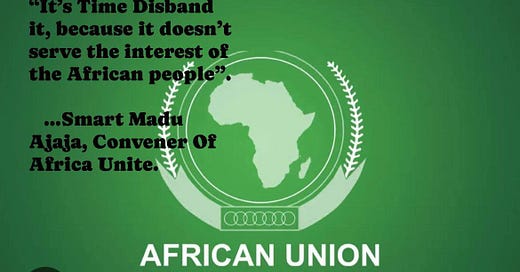





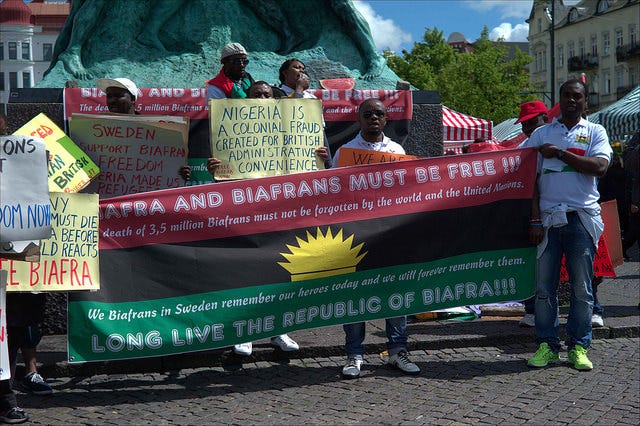
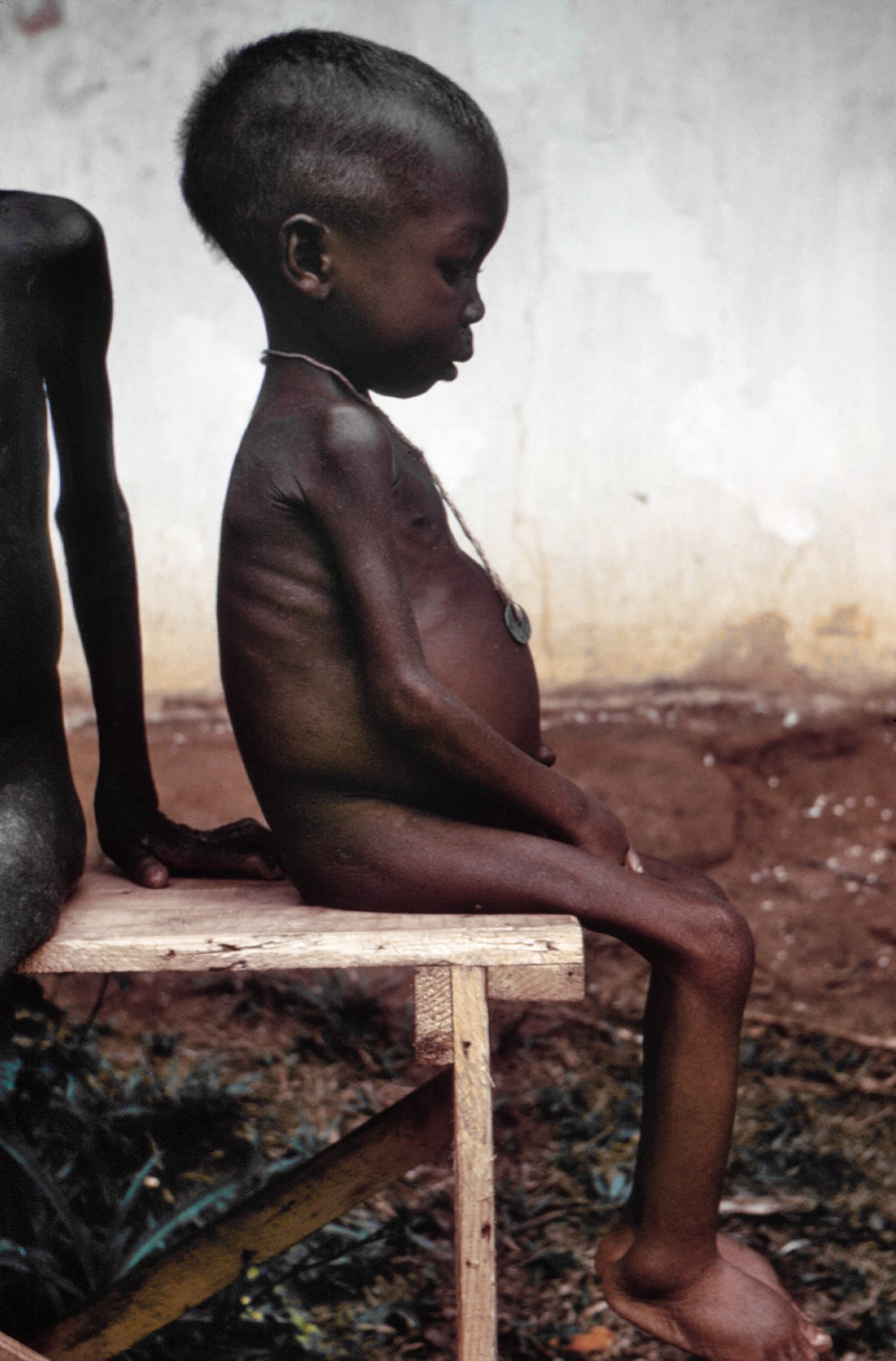
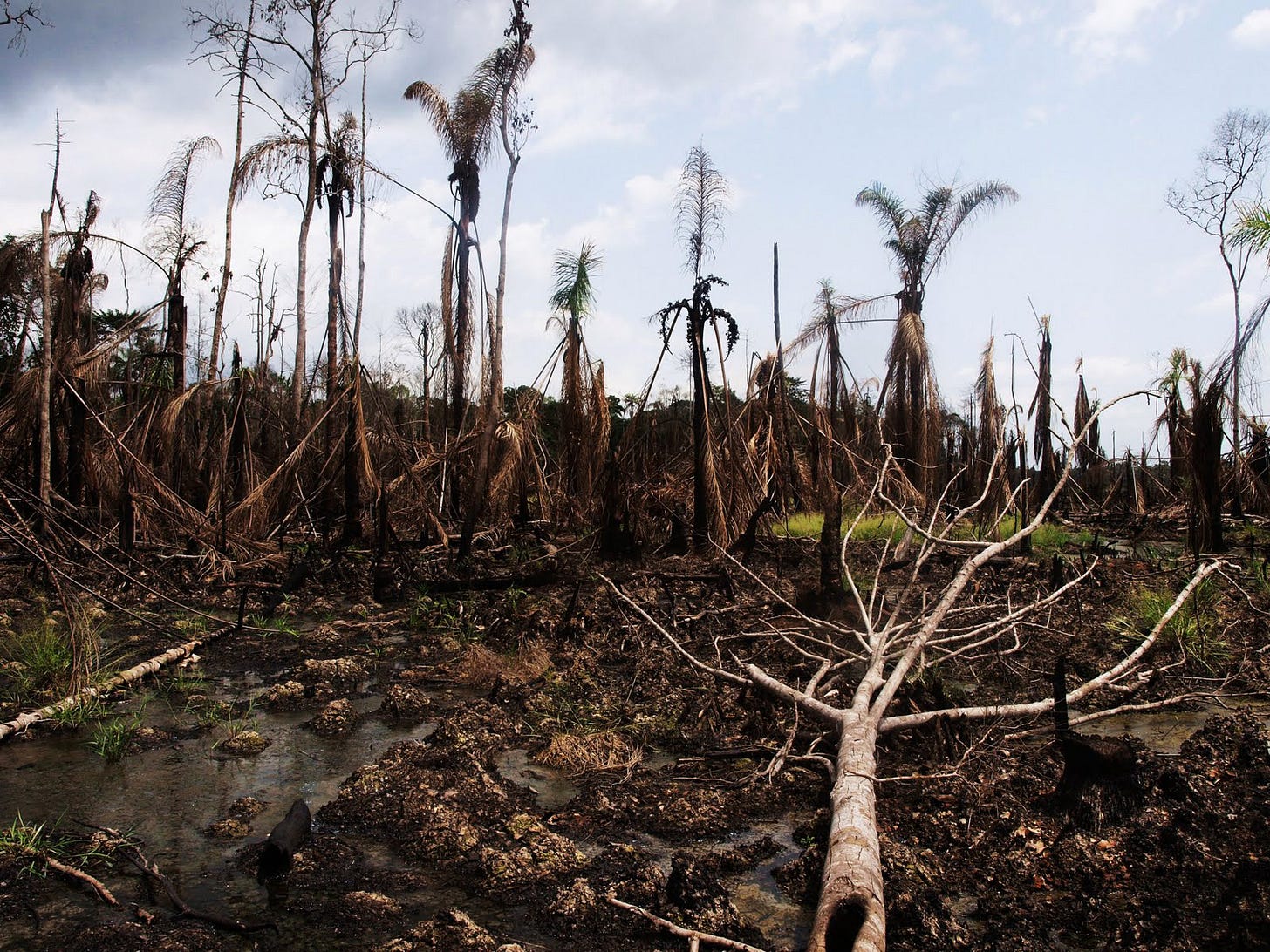

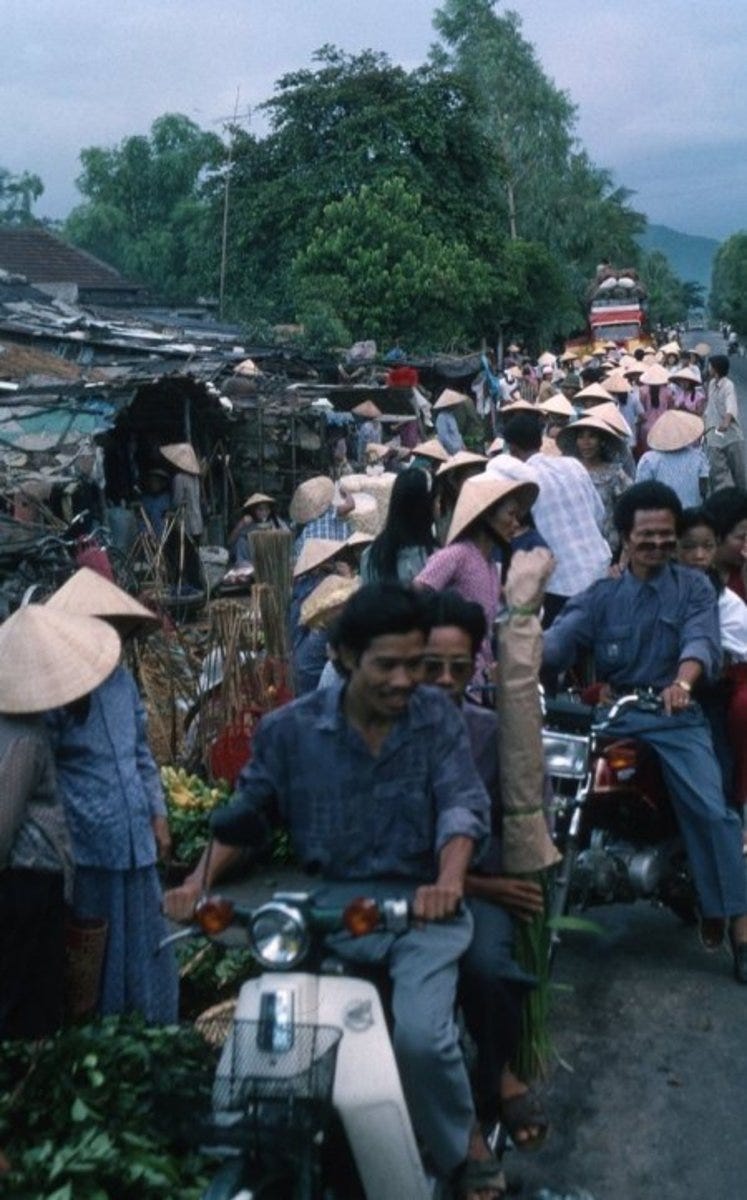
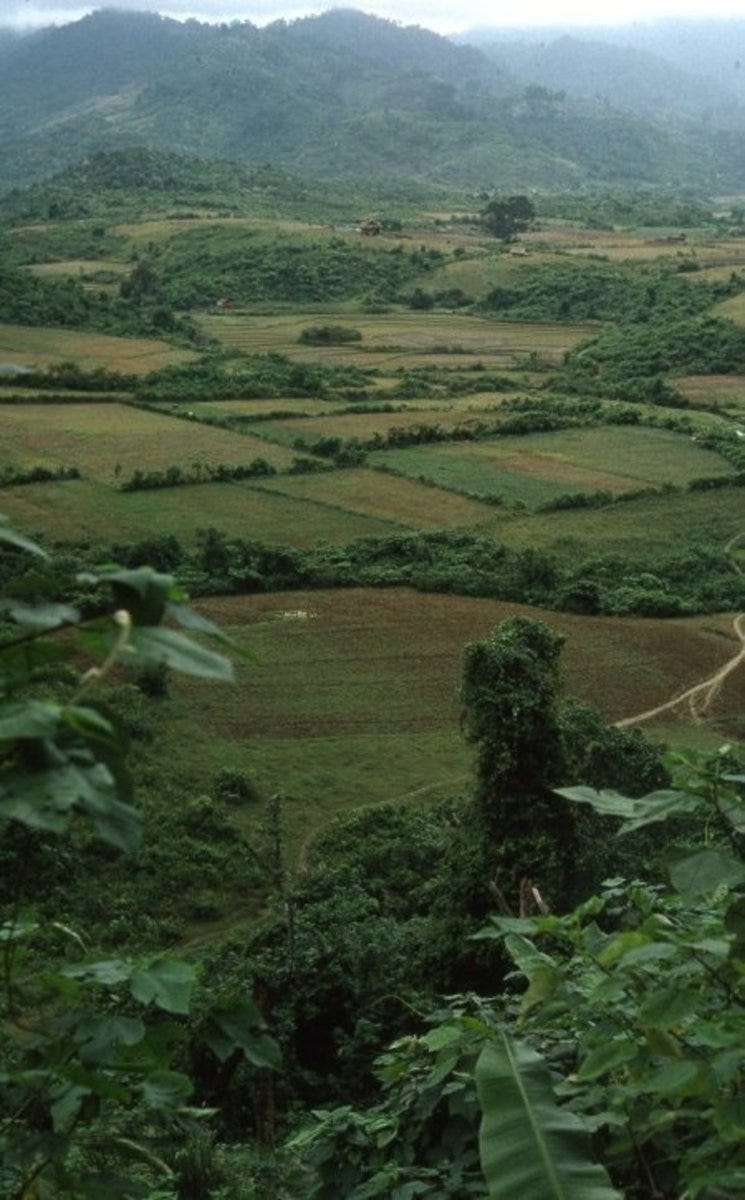
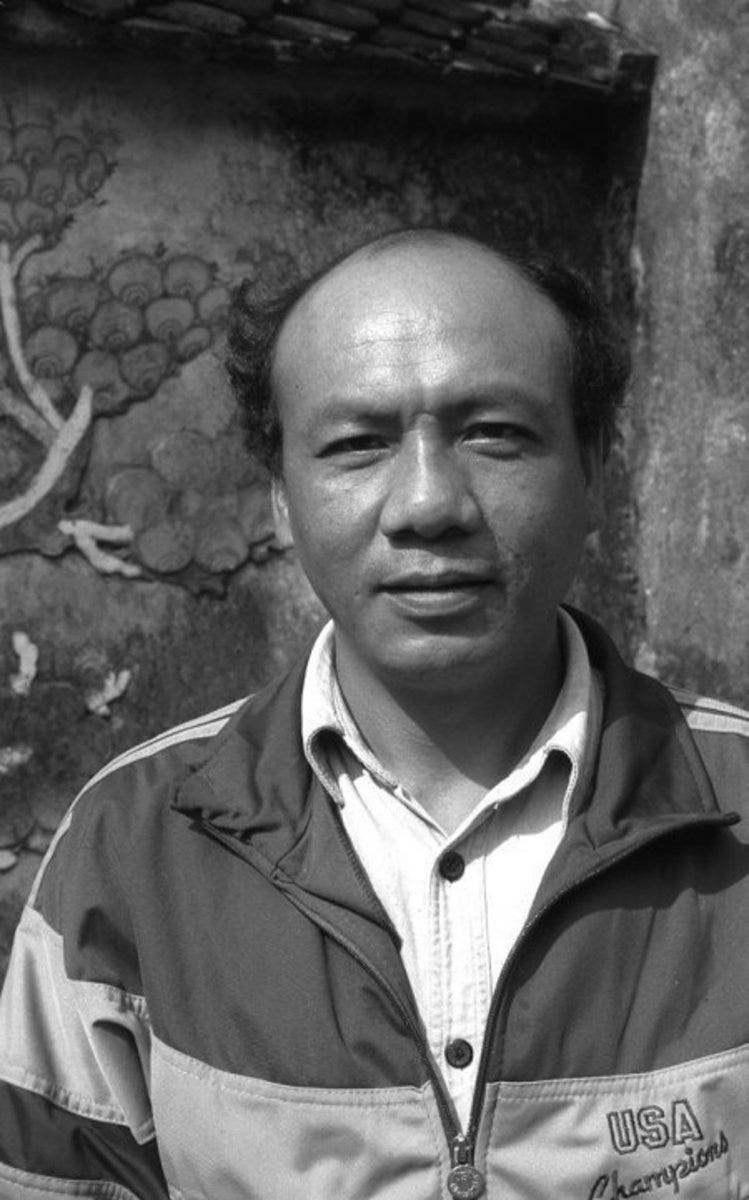

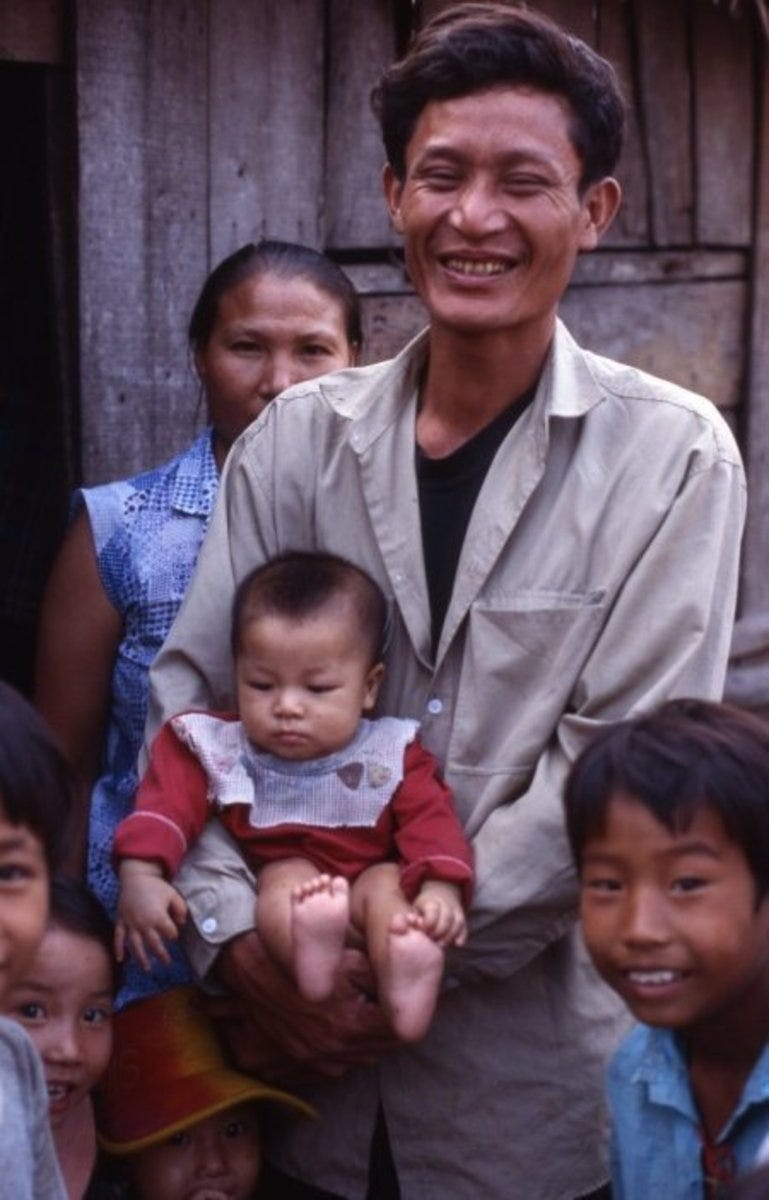










Share this post